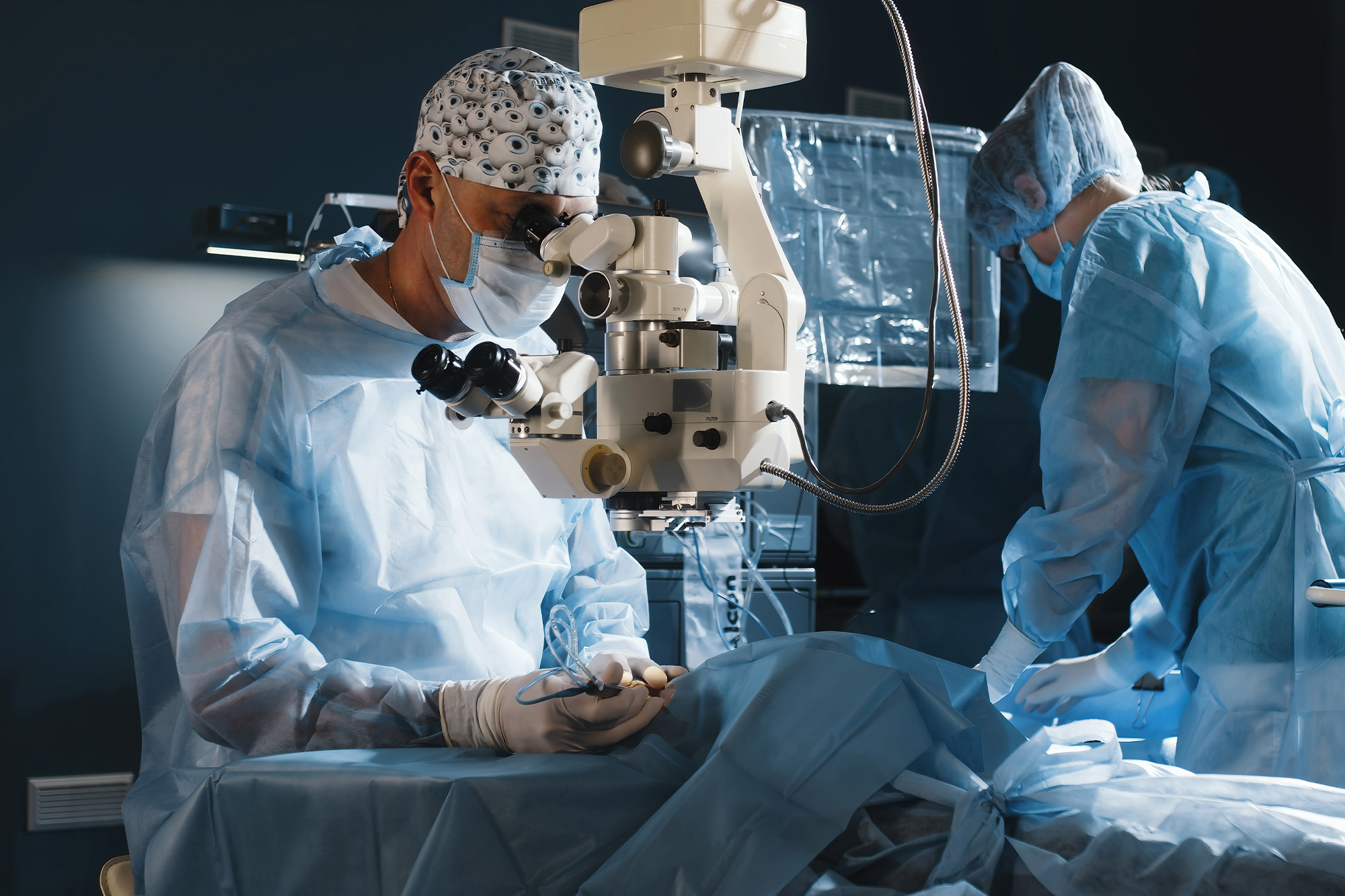
The terminology used to describe cataract surgeons can be a little confusing. Ophthalmologist, cataract specialist, eye doctor… Many people assume that they all offer the same services—but this isn’t the case.
So, it’s time to put the record straight.
Let’s get the latter, non-specific, term out of the way first. An eye doctor is not an official title. It’s one that’s used interchangeably by the general public to describe anyone who has any kind of clinical role within eye care. This can range from an optometrist, who is not a medical doctor, to a cataract specialist, who has undertaken many years of training and can treat and perform surgery on the most complex and challenging cataract cases.
Once we’ve put that one aside, it leaves us with the two types of medically qualified eye consultants who are trained and qualified to perform cataract surgery. These are a general ophthalmologist and a cataract specialist.
An ophthalmologist is a medical doctor who has undergone training to specialize in eye health. It takes many years of study and practical experience to achieve, starting with a four-year undergraduate degree. This is followed by a further four years at medical school, an internship, and a minimum of three years ophthalmology residence.
This takes anywhere from 12-14 years, after which time the doctor is trained in all elements of eye care and can perform certain surgical procedures, including straightforward cataract surgery. You can think of them in the same vein as a family or primary care physician—with an overarching knowledge of everything and anything to do with the health of the eye. They might be diagnosing glaucoma one minute, dealing with a traumatic eye injury the next, before prepping and performing a non-complex cataract removal.
In other words, an ophthalmologist is a fully trained and qualified medical doctor who has specialized in the all-round health of the eye.
A cataract specialist is also an ophthalmologist, so has undergone the same professional career route. However, they then take further training in a subspecialty—in this case, cataract care. To do this, they need to complete a fellowship, which adds another couple of years to the training and qualification pathway.
It’s this that provides the knowledge needed to not only treat more complex cataracts, but also to have access to and become highly proficient in the use of the constantly evolving, cutting-edge technology of advanced cataract procedures. This includes the latest premium intraocular lenses (IOLs), as well as treating less “run-of-the-mill” cataracts, such as traumatic, pediatric, and those associated with certain diseases and illnesses.
There are many benefits of choosing a cataract specialist. Even if your diagnosis is straightforward and within the scope of a general ophthalmologist, there are many reasons you might prefer the services of such a highly trained individual.
As in all fields, a person who deals almost solely in a single condition will always have incredibly detailed knowledge and finely honed skills—that’s the very definition of the word, specialist.
For you, the patient, this means:
The key takeaway is that a general ophthalmologist can perform straightforward cataract surgery, usually offering a monofocal IOL that needs to be complemented with eyeglasses for either near or far focus (most usually for close-up work). A cataract specialist has far more tools at their disposal. This includes cutting-edge procedures, a wide choice of IOLs, and extensive experience in more complex surgical procedures.
Even if your cataracts are straightforward, you may want to consider exploring the services of a cataract specialist, especially if you’re keen to take advantage of lens choice and advancing surgical procedures.